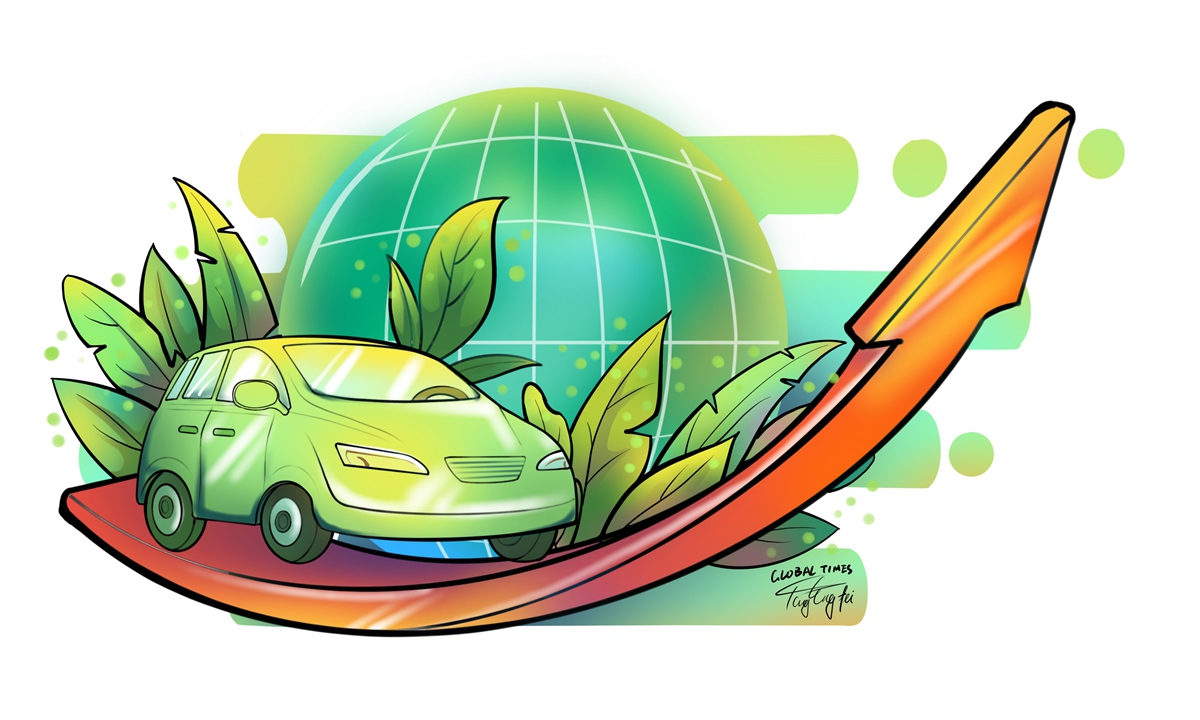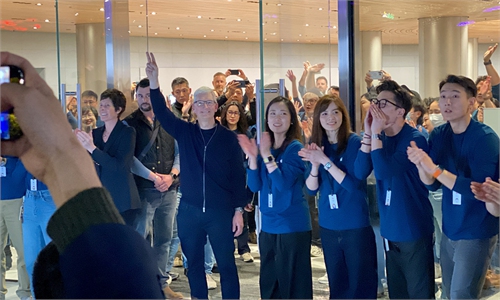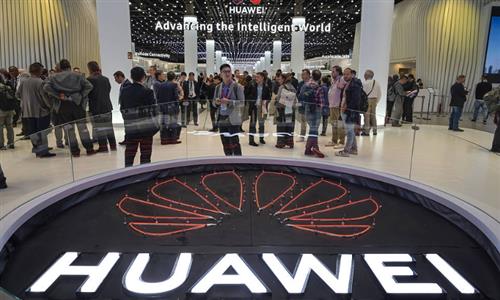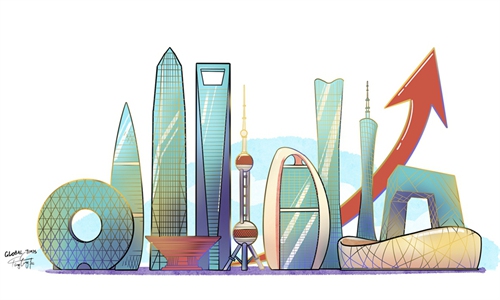China relies on competitiveness to retain position as world’s largest car exporter: Global Times editorial

Illustration: Tang Tengfei/GT
After China became the world's largest car exporter in 2023 for the first time, with an export volume of 5.221 million units, several media outlets and market organizations recently predicted that the country will maintain its position as the top car exporter in 2024. Cui Dongshu, secretary general of the China Passenger Car Association (CPCA), confirmed to the Global Times that with just one month left in 2024, "there is no doubt" that China's car export volume will continue to lead globally. The performance of new energy vehicles (NEVs) also remains impressive. In the first 10 months of 2024, China's share in the global market for new energy passenger cars reached 68.9 percent.
The overall development of the automotive industry in 2024 is equally impressive. Export volume is essentially a natural extension of the strength and competitiveness of China's entire automotive sector. According to statistics, China's total car production and sales are expected to stay above the 30-million mark this year. Additionally, the production and sales of NEVs in China are set to reach a historic milestone of 10 million units. Moreover, China's retail penetration rate for NEVs has exceeded 50 percent for six consecutive months since July, and for the first time, two Chinese automakers have made it to the global top 10 list in the third quarter of this year.
When media outlets listed the key terms of China's automotive industry in 2024, words like "intelligent" and "innovation" topped the charts, reflecting the intense competition and constant innovation that have become the common characteristics of the industry.
As export volumes increase, the reputation and recognition of Chinese cars globally have also risen, which is evident to all. At internationally renowned auto shows like the Paris Motor Show, Chinese NEVs have dazzled audiences, becoming a focal point of attention. Reviews of Chinese NEVs have become a trending topic on foreign social media platforms, with customers abroad praising their performance.
According to some estimates, the average manufacturing cost of Chinese NEVs is 35 percent lower than that of similar vehicles produced in European or other major automobile manufacturing countries. Moreover, in various crash tests, Chinese car brands have demonstrated excellent standards.
This surge in Chinese NEVs exports is not only beneficial for global consumers seeking high-quality, affordable products, but also contributes positively to the global green transition. It is estimated that each NEV reduces carbon by about 1.66 tons per year. In countries where the energy transition process has stalled, the robust growth of Chinese NEVs has provided a powerful boost to the global energy transformation.
Since the beginning of this year, Chinese automakers have established factories and begun production in countries such as Thailand, Spain, and Mexico. Established automakers like Japan's Toyota, Germany's Volkswagen, and the US' General Motors have also shown confidence in the future prospects of the Chinese market, increasing investment through factory setups and other initiatives.
The movement of these major automakers reflects the unchanged reality of the global automotive industry's interconnectedness in the wave of globalization- "you have me, and I have you." This is a historical trend that no "decoupling," supply chain disruption, or trade protectionism can fundamentally block.
It is undeniable that, as China's automobile exports continue to grow and maintain their position at the top globally, traditional automakers and leading automobile-producing nations have responded with a complex range of public reactions.
However, the evolution of the modern automotive industry over the past century has been primarily driven by market competition.
The increase in Chinese NEV exports is driven by the advantages of its entire industrial chain, along with the comprehensive competitiveness stemming from technological innovation, product quality, and price advantages. This has earned the favor of global consumers.
Politicizing the challenges faced by some traditional automakers in the current competitive market or simplistically attributing them to a "China responsibility theory" is a distorted and irresponsible interpretation of changes in the global automotive market landscape.
The development of China's automotive industry is rooted in an open and cooperative international environment, and hopes to continue to promote equal competition and cooperation with all parties in an open and cooperative environment. Almost all international car brands have benefited from China's reform and opening-up policies.
Now, as NEVs take center stage, China is becoming a crucial hub for competition and innovation in the global auto industry. Chinese and foreign automakers can still find pathways to mutual success through competition and collaboration.
Companies like Volkswagen and Toyota are accelerating their cooperation in China, jointly promoting the development and application of electrification technologies.
Meanwhile, Chinese automakers are expanding overseas, enhancing their presence, and strengthening partnerships in supply chains and production with local stakeholders.
Sharing opportunities while navigating major transformations together is the most effective way to address the profound changes in the global automotive landscape.



